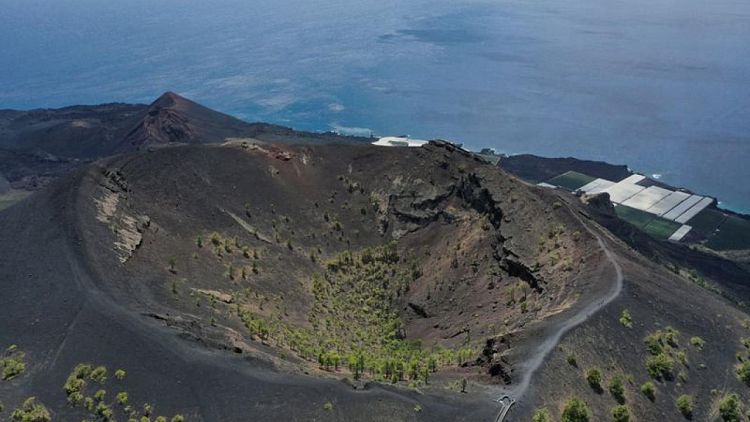By Borja Suarez
LA PALMA, Spain -A volcano erupted on the Spanish Canary Island of La Palma on Sunday, sending jets of lava and a plume of smoke and ash into the air from the Cumbre Vieja national park in the south of the island.
Authorities had begun evacuating the infirm and some farm animals from surrounding villages before the eruption at 3:15 p.m. (1415 GMT) on a wooded slope in the sparsely populated Cabeza de Vaca area, according to the islands' government.
Two hours later, with rivers of lava edging down the hillside, the municipality issued a mandatory evacuation order for four villages, including El Paso and Los Llanos de Aridane. Soldiers were deployed to help, and residents were asked to keep mobile phone use to a minimum.
Spain's Civil Guard later tweeted that it would take part in the evacuation of between 5,000 to 10,000 people from villages near the volcano, including El Paso and Los Llanos de Ariadne.
Video footage showed fountains of red molten lava shooting into the sky, and plumes of smoke could be seen from across the island.
"In no circumstances go near the lava flow," the municipality warned residents. "If there is volcanic ash, stay in your houses."
Spanish Prime Minister Pedro Sanchez said he had postponed his trip to the United Nations General Assembly in New York and was on his way to La Palma.
FISSURES
Stavros Meletlidis, a doctor of volcanology at the Spanish Geographical Institute, said the eruption had opened up five fissures in the hillside and that he could not be sure how long it would last.
"We have to measure the lava every day and that will help us to work it out."
Canary Islands President Angel Victor Torres told TVE that no injuries had been reported so far, but the municipality said several roads had collapsed.
Spain's King Felipe spoke with Torres about the situation and was following developments, the royal household said.
Flights to and from the Canaries were continuing as normal, the airport operator Aena said.
La Palma had been on high alert after more than 22,000 tremors were reported in the space of a week in Cumbre Vieja, a chain of volcanoes that last had a major eruption in 1971 and is one of the most active volcanic regions in the Canaries.
The earliest recorded eruption in La Palma was in 1430, according to the Spanish National Geographical Institute (ING).
In 1971, one man was killed as he was taking photographs near the lava flows, but no property was damaged.
